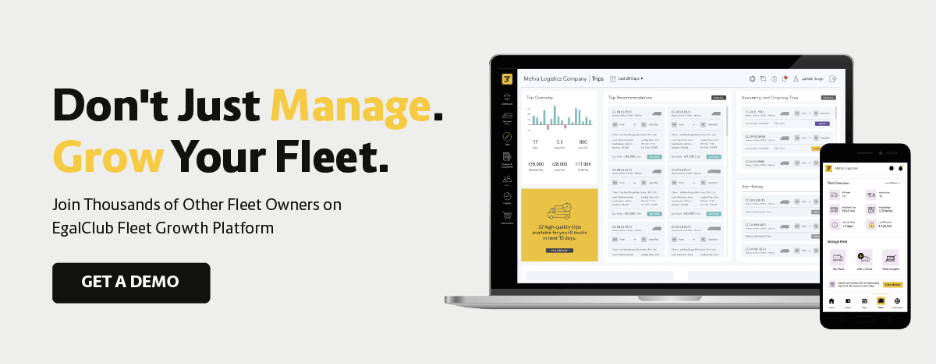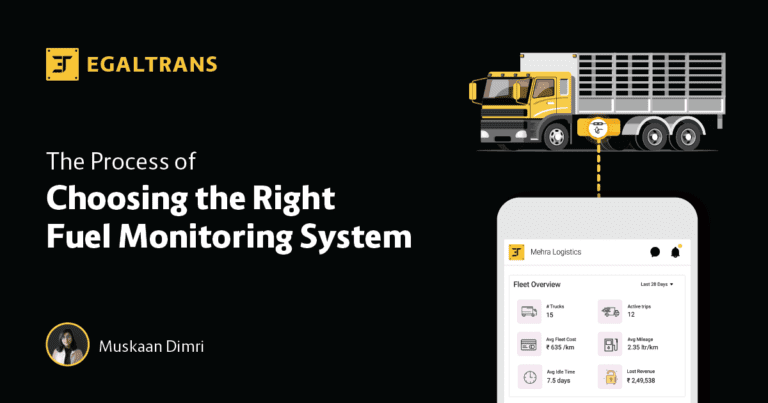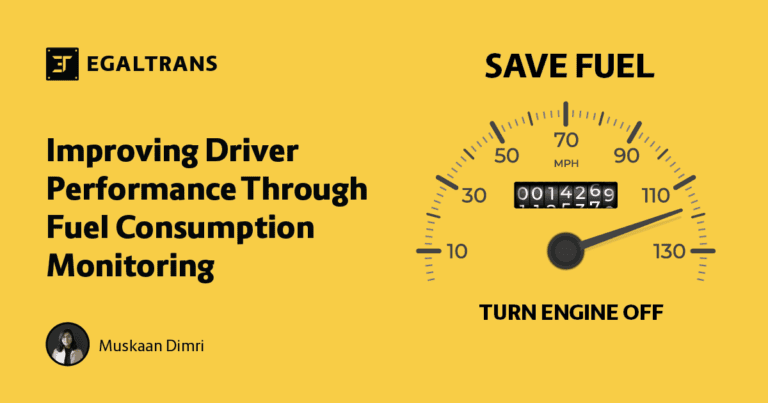In a market where 12 million or 1.2 Crore Heavy Commercial Vehicles (HCV) operate, it becomes a no-brainer for Indian fleet owners to implement an efficient truck fleet management program. Because if they don’t, competition can start eating into their business without a warning and diminish their profits. Fleet owners who have a decent enough fleet management team and an advanced technology solution implemented, which not just help automate their operations but help in scaling, can grow sustainably.
An efficient truck fleet management program would include an experienced fleet manager, trained fleet management team, drivers trained on using technology solutions, trucks embedded with advanced tracking & monitoring sensors, preventive maintenance scheduling, and an integrated solution for freight, finance, and fleet management.
Such an efficient program would result in:
- Improved driver safety and performance
- Fuel efficiency
- Remote monitoring reducing fleet management costs
- Increased truck lifespan and health
- Dispatch improvement and optimized routes
This article discusses importance of truck fleet management and methodical implementation of a good program.
What is Truck Fleet Management and Why is it needed?
Truck fleet management in simple terms is the process of strategic coordination, monitoring, and optimization of operations of a group of trucks. It aims enhancement of operational efficiency, cost reduction, and ensuring regulatory compliance to improve overall performance of a fleet of trucks.
With the use of technologies such as telematics, predictive maintenance, and data analytics, fleet owners and managers make informed decision on promoting driver safety, truck utilization, fuel efficiency and more.
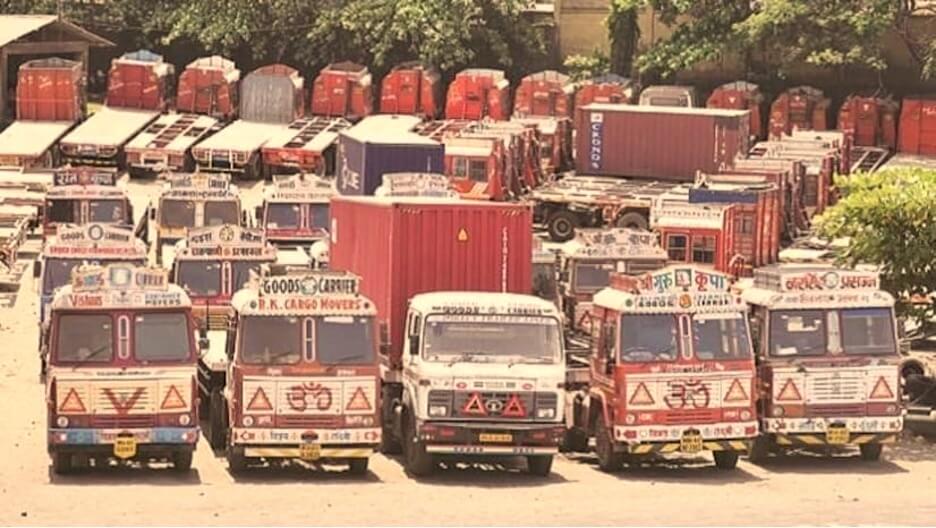
Almost 60% of goods transport in India happen by road, and trucking constitutes most of it. With the growing use of technology in operating modern truck fleets, delivering transport services to every corner of the country at minimum costs requires fleet managers to stay updated with the latest innovations. Hence, it’s high time fleet owners and managers learn from successful fleet operators and start implementing a powerful fleet management program, now.
The Crucial Role of a Fleet Manager
Starting from overseeing the end-to-end operations of a trucking fleet, a fleet manager must ensure keeping a check on trucks, drivers, maintenance, documentation, freight routes, rates and more. A good truck fleet manager must have practical knowledge of best practices of fleet management. Here are the responsibilities of a truck fleet manager:
- Operating trucks on best routes to ensure profitable business
- Timely loading and unloading of shipments
- Training drivers on technical and professional aspect of trucking
- Scheduling proactive maintenance checks
- Adhering to regulatory compliance and keeping all documents updated
- Integrating advanced technologies for fleet tracking and optimization
Successful fleet managers build their own rule book based on their field experience. We are going to discuss few of the best practices from their rule books.
25 Ways to be Outstanding at Truck Fleet Management
These practices ensure smooth fleet operations and continuous growth in fleet profits:
- Adopt Advanced Telematics Solutions: Studies have proven that there’s at least 15% improvement, irrespective of the fleet size, in performance and profitability after successful implementation of fleet telematics solutions. Fleet managers must use advanced systems for real-time GPS location tracking, route optimization, vehicle health, driver safety and more. Choose a good and experienced fleet telematics technology provider to help you implement a successful program.
- Periodic Truck Maintenance: Schedule regular maintenance ad fleet health checks to minimize breakdowns and elongate the life of your truck fleet. Highlight issues which can be addressed by your maintenance staff. If you do not have internal maintenance teams, find reliable maintenance partners who can take good care of your fleet.
- Invest in Driver Training Programs: Ask your drivers to participate in continuous training programs to enhance driver skills, safety, and compliance. Partner with truck driver training schools and enroll your drivers into quarterly if not monthly trainings. You can also conduct these training and safety workshops at your own premises.
- Fuel Management: Use fuel monitoring systems to track consumption, identify inefficiencies, and reduce fuel costs. Such systems help in managing fuel efficiency of your fleet and establishes transparency and trust between you and your drivers.
- Route Optimization Software: Utilize an integrated software to optimize routes, reduce travel time, and enhance overall efficiency of your trucking operations. If your fleet management software doesn’t have a route optimization feature or capability, ask them to build for you or chose a fleet management software that provides this capability.
- Analyze Vehicle Utilization Data: Evaluate vehicle usage patterns and most traveled routes to identify underutilized or overworked assets. This data can provide you insights into improving truck utilization and increase profitability.
- Driver Performance Measurement: Measure driving behaviors and train your drivers to improve fuel efficiency, safety, and compliance. Put together metrics that will help your drivers self-assess their performance and help you boosting fleet performance.
- Electronic Logging Devices (ELDs): Although ELDs are not so prevalent in India yet, you can still find solutions to get data from your fleet and measure operational time of your trucks and drivers. Save your drivers from getting fatigued and reduce chances of truck breakdown.
- Load Optimization: Underload trucks consume less fuel. Though if load is lower than your profitable limits, it could hurt your business. Optimize load distribution to maximize cargo capacity and reduce unnecessary trips.
- Predictive Truck Maintenance Systems: Use data analytics to predict and prevent potential truck maintenance issues before they occur. Perform regular assessments to collect necessary data about health of your fleet.
- Safety Technology Solutions: Equip your trucks with advanced safety features such as collision avoidance systems and lane departure warnings. This ensures safety of your drivers, other vehicles on the road, and public.
- Centralized Fleet Management System: Implement a centralized system for streamlined communication and data management. A fleet management system that can integrate fleet, freight, and finance data of your trucks will help you grow your business faster.
- GPS Tracking Integrated Software: Implement software that provides real-time location tracking for improved visibility. This usually would be a core feature of your fleet management software, but if it is missing, ask your software provider to integrate.
- Asset Tracking and Management: Extend tracking capabilities beyond trucks to monitor other valuable assets within the fleet such as parts, tires, drivers, and more. Keeping a continuous track of your fleet components gives you better control on your fleet costs.
- Driver Incentive and Reward Programs: Introduce incentive programs to encourage safe driving habits and fuel-efficient practices among your driver force. Encourage your drivers to get trained on driving practices and latest technologies to keep themselves ahead in their career.
- Environmental Impact Reduction: Explore eco-friendly options such as electric or hybrid vehicles to reduce environmental impact and reduce carbon emissions of your fleet. You can also take advantage of green initiatives that attract subsidies and benefits from the government.
- Regulatory Compliance and Document Management: Stay informed about and adhere to regulatory changes affecting the trucking industry. Maintain up-to-date documentation of you driver force and trucks to avoid unnecessary fines.
- Use Mobile Applications: Provide your drivers and dispatch teams with mobile apps for easier communication, navigation, and reporting. Better communication between your drivers and your dispatch teams will impact fleet performance and business growth. This also provides you access to remotely monitor movement of your fleet.
- Fleet Maintenance Software: Use software to manage maintenance schedules, track repairs, and forecast future needs. You can manage your inventory using this feature of your fleet management system. Many software solutions enable you to work with external maintenance partners to keep your fleet healthy.
- Driver Feedback Systems: Implement systems that provide real-time feedback to drivers, fostering improvement. Also capture feedback from your drivers about the processes and technologies you can improve. Since drivers are on the road, they’ll provide you much better information about challenges and hurdles in your fleet operations.
- Inventory Management: Integrate inventory systems with fleet management to synchronize supply chain operations and fleet maintenance. Planning ahead can save you a few extra bucks that you can show as costs savings to your leadership.
- Fleet Cost Analysis: Regularly review and analyze operational costs to identify areas for improvement. Report your findings to your leadership as well as important members of your fleet, so they can help you get control over any these costs.
- Dynamic Trip Scheduling: Adopt dynamic scheduling to accommodate changes in real-time, improving overall flexibility of your fleet. It helps you rotate healthy trucks and find time for maintenance of old trucks.
- Supplier/Vendor Negotiations: Regularly review supplier contracts and negotiate for better rates and terms. Any money you save here can help you invest in fleet health improvement or driver safety and training.
- Customer Relationship Management (CRM): Utilize CRM tools to enhance communication with clients and improve service delivery. Maintaining quality delivery service can win you more contracts and fuel growth of your fleet.
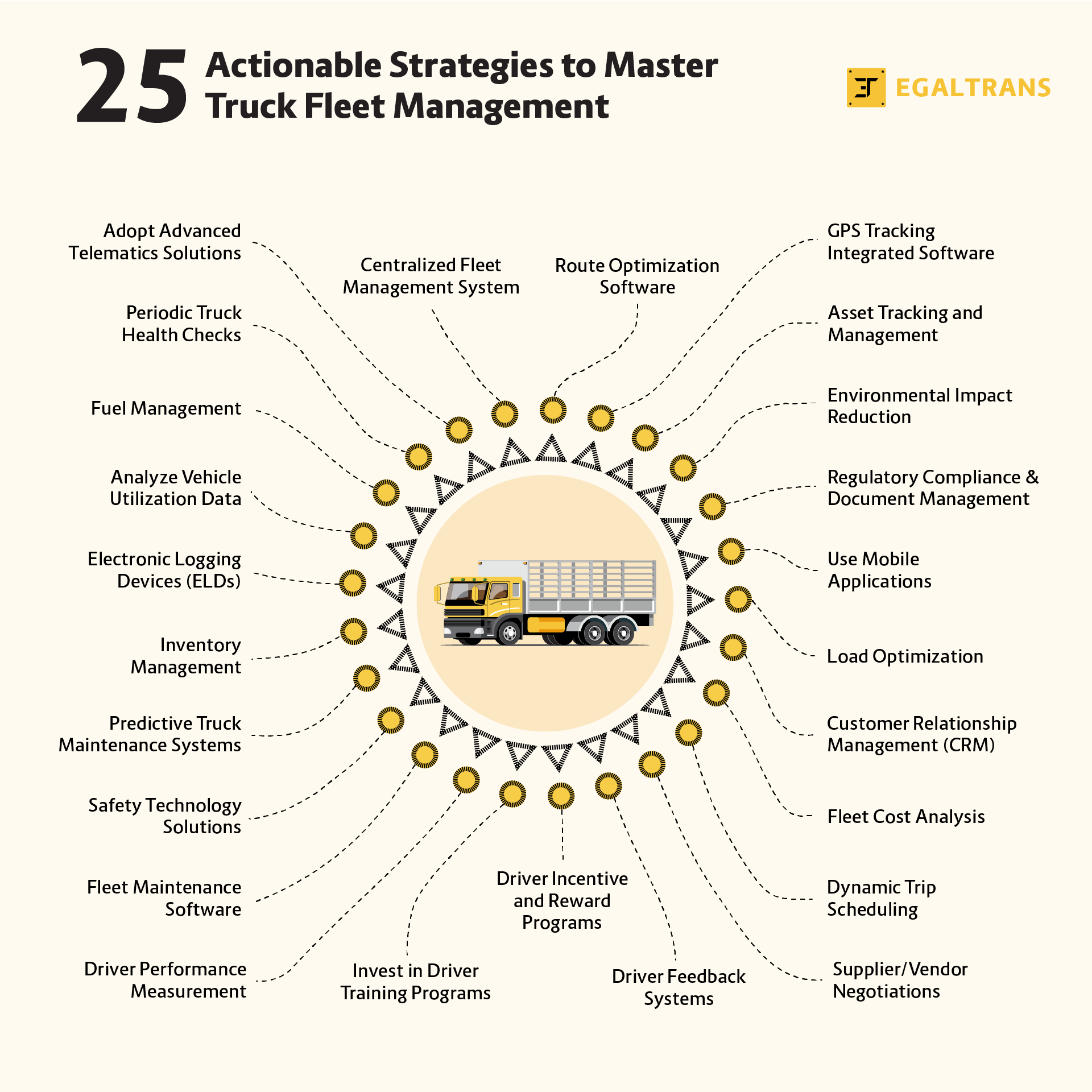
By religiously following these practices, truck fleet owners can skyrocket the growth of their fleets. The future for truck fleet management in India is poised for significant transformation in the upcoming few years. With the advent of advanced telematics, IoT, and data analytics, fleet managers can expect improved fleet operations. Green practices are gaining prominence, with a focus on eco-friendly and electric vehicles. As the industry transforms, fleet managers can expect tremendous growth in their fleets.



